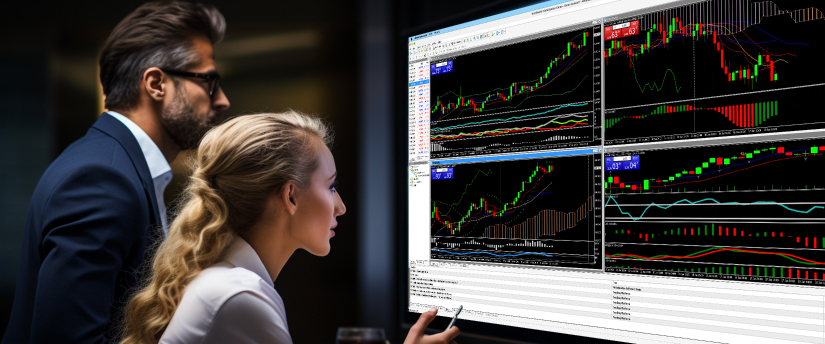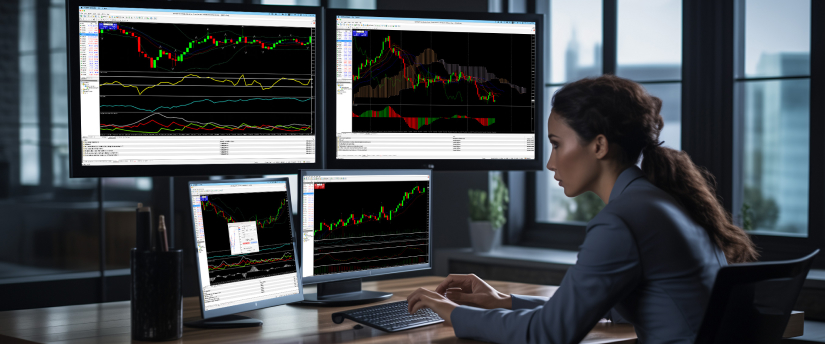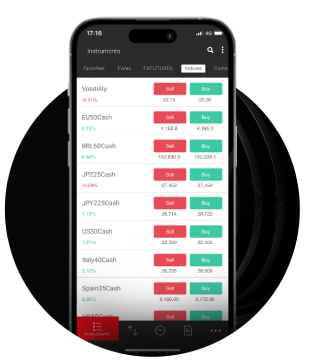Trading in the forex market can provide exciting opportunities but it can also be stressful. Since forex is a fast-paced market with prices constantly moving, getting caught up in emotions is very easy. Although many traders enter the market with a solid strategy, if they let emotions in, this same strategy may fall apart. These emotional traps can lead to poor trading decisions, unnecessary risks and therefore, losses.
If you are familiar with trading emotions and what they can cause, is the first step toward avoiding them. Knowing how your trading can be affected can help you become more disciplined while sticking to your plan and goals. Read this article to learn about the most common emotional traps in forex trading as well as how to avoid them.
Fear & greed factors in trading forex
Fear is one of the most frequent emotions traders experience. It can prevent traders from taking good opportunities because they are too afraid of losing. For instance, there might be a clear signal to enter a position, but a trader might hesitate until it’s too late. Fear also makes traders close trades too soon and therefore, miss out on possible profits because they are too worried that the market might move the opposite direction.
What’s hard with fear is that it makes your judgement not so clear. Although you have a trading plan, instead of sticking to it, you make rushed decisions out of fear. Setting realistic stop-loss and take-profit orders before entering, helps overcome fear. If you decide on these beforehand, you can limit fear and avoid emotional reactions or doubting yourself while still in a trade.
On the opposing side, is greed, which is equally dangerous. It occurs when forex traders want more and more profits without taking into account the risks. Image a trader with a series of successful trades refusing to close a position, in hopes of the price going even higher. In the end, the market takes another direction and there are no profits anymore.

Over-leverage or opening multiple positions at the same time is another result of greediness that creates unnecessary exposure and increases losses. The way to solve this is by being disciplined and accept that not all trades will be successful. Taking profits as planned and keeping sizes steady can help stop the need to go after bigger wins.
What is revenge trading & FOMO?
Revenge trading is another emotional trap many traders fall into. It refers to when traders lose and then try to win again right away rather than analysing the market. They enter the forex market without a clear plan and mind and make impulsive decisions guided by anger and frustration, which usually leads to bigger losses. Individual traders are not to centre of attention in the markets.
So, trying to win back a losing usually makes the situation even worse. To avoid revenge trading, you should take a step back after a losing trade. When you pause, you have time to think and reflect on your mistakes. You could even walk away from your screen, take a moment and then come back with a clear head.
FOMO, or fear of missing out happen when traders see a strong market move and enter without solid analysis just because they do not want to miss the opportunities. What happens most of the time, is that by the time they enter, the move is already over, and they end up losing money. FOMO usually leads to poor impulsive decisions that don’t follow a trader’s plan.
How to fix this? With patience. The foreign exchange market is open round the clock, with new opportunities popping up all the time. Rather than going after a missed trade, you can focus on following your strategy and trading plan. Keep in mind that one missed opportunity is better that one bad trade.

Overconfidence vs holding on to losing trades
Confidence is very important in forex trading. However, overconfidence can be a trap. It usually happens after a series of successful when some traders start to feel like they are unstoppable. They increase the size of the position, take on unnecessary risks and leave their strategies. As a result, they take on big losses.
Overconfidence is dangerous because it tricks traders into believing that they no longer need to be disciplined. To avoid this, it is vital to treat each trade as independent and unique. A series of successful trades do not mean that this will be the case in the future. Your position sizes should be kept consistent, and your trading plan should be followed to help maintain balance and avoid reckless behaviour.
Quite on the opposite side, is refusing to close losing, which is another emotional mistake. Many traders keep positions open in hopes of the market eventually turning their preferred direction. This usually happens because of denial or fear of making a mistake. While losses should be cut early, traders end up with bigger losses that ruin their trading accounts.
Effective trading plans always take losses into account. The important thing is to know how to control them, not try to avoid them. Setting stop-loss orders and sticking to them is equally important. Taking a small, controlled loss is preferred than risking losing a significant amount of capital.
Should I ignore risk management in forex?
Patience is one of the most difficult skills in forex. Impulsive traders believe that they must always be in a trade and often enter the market without waiting for proper setups. In most cases though, waiting is the smartest move. Forex is more effective for those who wait for clear signals and well-planned entries. Rushed trades usually lead to mistakes, so it’s better to open a few quality trades than many impulsive ones.
Many emotional mistakes in trading are linked to poor risk management. When traders are driven by emotions, they often forget to calculate risk, use tools like stop-loss orders or put too much of their capital into one single trade. All these make accounts vulnerable and allow losses in. Risk management is not only about protecting one’s capital but rather about managing trading emotions. If a trader is aware of their maximum loss beforehand, it is easier to remain calm.

結論
When trading forex, the goal is to manage emotions, not remove them entirely. A clear plan keeps you focused and prevents impulsive choices, while a trading journal helps you learn from emotional reactions. If you feel stressed, take a short break to rest and think clearly.
An effective trading journey comes from patience, disciplined and consistency not luck. Remember that trading is as much about mindset as it is about strategy. The trading emotions mentioned above can significantly affect your decisions. If you stay and practice using solid risk management, you can more protect your capital more easily, make smarter trading decisions and give yourself a better chance of a potentially effective trading journey in the long term.
免責事項: 本情報は、投資助言や投資推奨ではなく、マーケティングの一環として提供されています。IronFXは、ここで参照またはリンクされている第三者によって提供されたいかなるデータまたは情報に対しても責任を負いません。
















